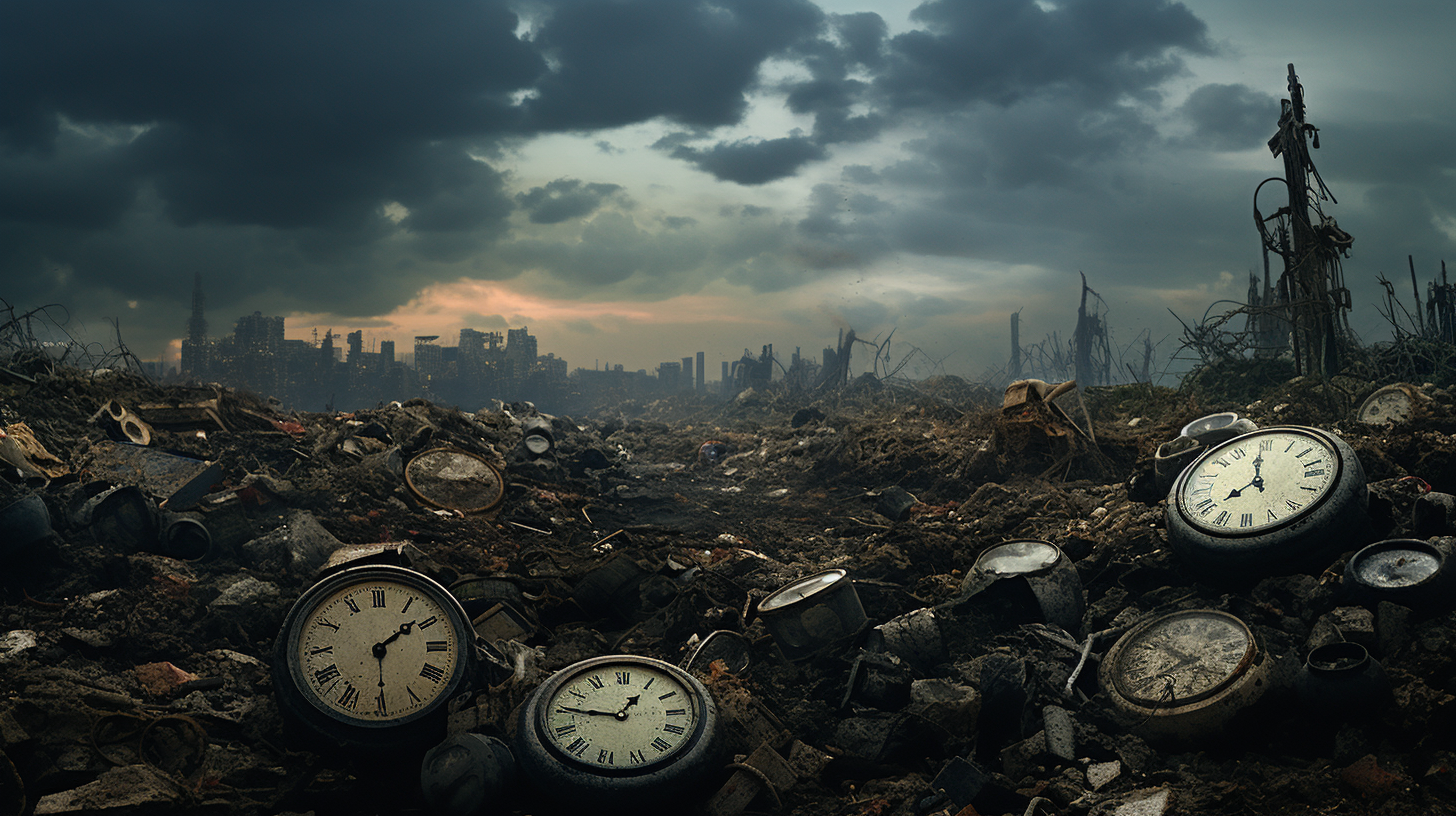In a world blanketed by the heavy shroud of environmental downfall and ravaged by the repercussions of unchecked consumerism, our planet has become an archive of discarded relics. The landfills swell with the carcasses of yesterday’s conveniences, the plastic wrappings of instant gratification, and the skeletal remains of technology’s rapid obsolescence. These mountains of refuse stand as somber monuments to a bygone era of excess, raising a curious question: In the arid wasteland of our making, will the detritus of our days be the treasured heirlooms of tomorrow?
Imagine a scene, not too far removed from today’s realities, where future archaeologists don utility suits to foray into the toxic tombs we once called dump sites. Amidst the shards of shattered screens and the faded fabric of fast fashion, they discover what once was deemed irrelevant and obsolete. With each unearthed item, a story of the past flutters to the surface, painting a narrative of a civilization too consumed by consumption.
Perhaps it’s an old smartphone, its glass face warped by time, providing a dim reflection of society’s addiction to constant connectivity and the ceaseless churn of ‘upgrades’. Or maybe a cluster of microplastic particles, those insidious infiltrators of ecosystems, now reimagined as bizarre beads meant to adorn the necks of those who live in a land bereft of nature’s diversity. Plastic bags, once a symbol of convenience, could be recast as gossamer tokens of a world that prized disposability over durability.
Throughout the decrepit remains of what we’ll leave behind, the future dwellers navigate a narrative of ruin. Cloaked in irony, these new-age hunters and gatherers sift through the ruins seeking to connect with the ancestors—that is, us—who seemed to view the world as an endless supplier of resources, with human ingenuity as the infallible janitor to clean up the inevitable mess.
Yet here lies the twisted charm of this dystopian reverie: in the depths of despair, there blooms a perverse breed of nostalgia. Will our everyday trash become the precious artifacts for those left to sift through the rubble? In the realm of ‘Green Dystopia’, where hope itself has been recycled, this is no mere fantasy. The relics of our recklessness—bottles, baubles, batteries, and all—are imbued with a new-found significance.
‘Jungle Metropolis’ and ‘Whispers of the Wasteland’ whispered of nature’s defiant resurgence through the cracks of our concrete jungles. And just like the highways in ‘Asphalt Meadows – When Highways Revert to Nature’, transformed into corridors for wildflowers and forests, the artifacts of our time may blossom into the revered relics for future generations, twisted tokens of remembrance.
In this envisioned future, children no longer covet the latest toy released in a blitz of marketing; instead, they might cherish a corroded aluminum can—a chronicler of past opulence and waste. Social status could be signified by one’s collection of pristine, never-used plastic utensils, a strange contrast to the metal-detecting beachcombers of our own recent history.
As we dare to lean into the fantasy, we are confronted with the uncomfortable truth: Our legacy might not be the grandeur of skyscrapers or the majesty of technologies that pierce the heavens. Instead, we leave behind a perverse patchwork of persistent pollutants and the quiet alarm of a planet in pain.
The treasures of today are the trash of tomorrow, and as we contemplate the relics of our current era, we can’t help but wonder if our descendants will find value in the waste we willed to them. Will they glean lessons from our follies, or will they merely puzzle over the practical uses of what we have abandoned?
It’s a fascinating, albeit somber, thought experiment. Our once-coveted possessions may very well become the currency of cultural capital in a future devoid of the bounties we squandered. At the threshold of no return, this grim collector’s edition of reality serves as both a dark memento and a powerful catalyst for reflection.
In the twilight of an age, it is our refuse that becomes the relics. One last, caustic joke played by humanity on itself. To those who walk in the shadow of our past, may our trash be their treasure—and in each forsaken fragment, may they find the wisdom to forge a world we failed to envision.
